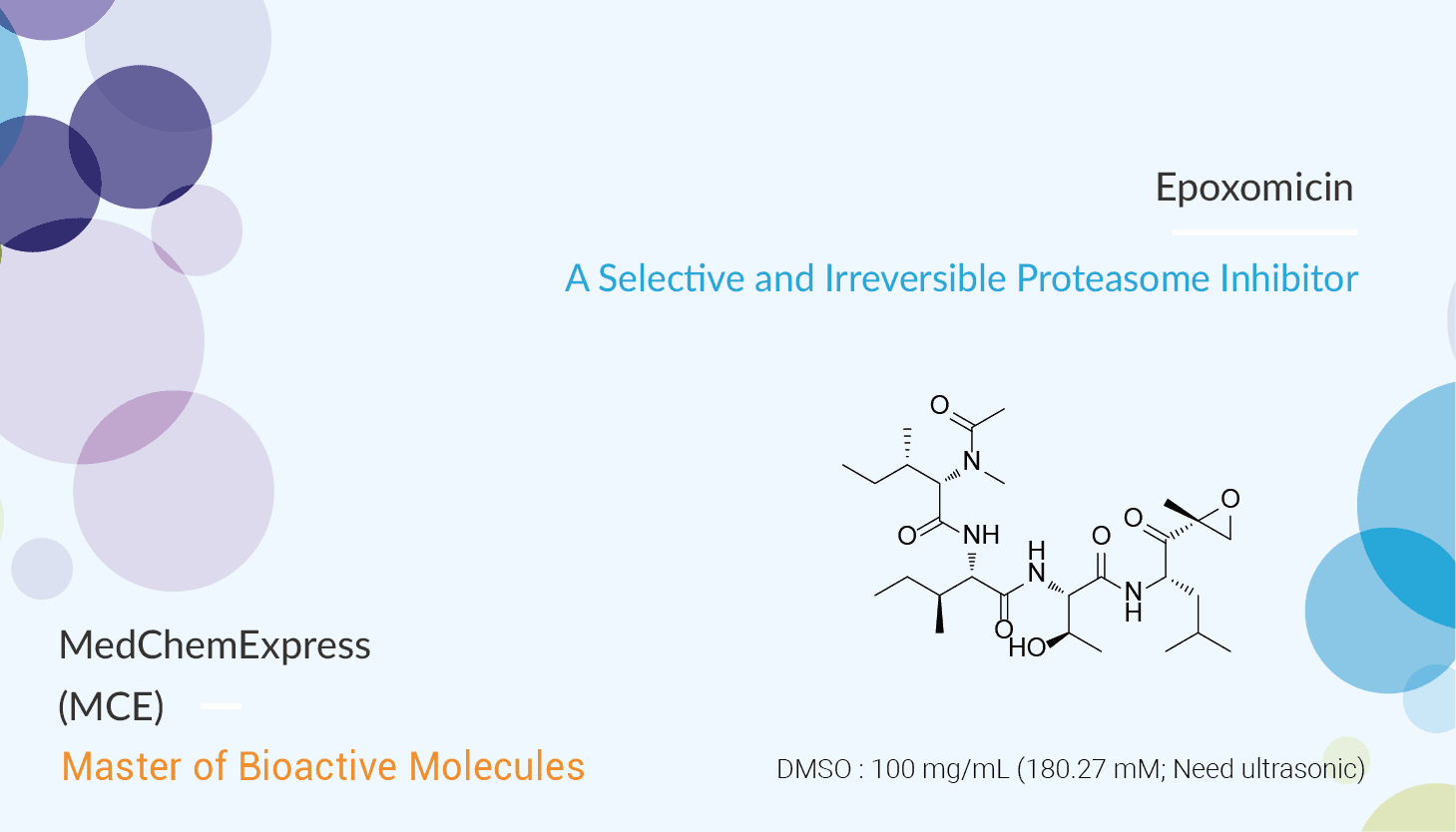Epoxomicin (BU-4061T) is a potent, selective and irreversible proteasome inhibitor. Epoxomicin can cross the blood-brain barrier and has strongly antitumor and anti-inflammatory activity.
Proteasome is a 700 kDa, cylindrical-shaped multicatalytic protease complex. It has 28 subunits and organizes into four rings. Besides, Eukaryote 20S proteasome has three major proteolytic activities: chymotrypsin-like activity, trypsin-like activity, and peptidyl-glutamyl peptide hydrolyzing activity (PGPH). Additionally, Proteasome proteolytic activities appear to be contributed by different catalytic sites. Proteasome inhibitors alter these activities to various degrees, such as point mutations in β subunits and the exchange of IFN-γ-inducing β subunits.
Epoxomicin is an α′,β′-epoxyketone containing natural product.

Epoxomicin covalently binds to the LMP7, X, MECL1, and Z catalytic subunits of the proteasome. It potently inhibits primarily the chymotrypsin-like activity. In addition, Epoxomicin shows quite potent cytotoxicities. Besides, it also inhibits the cells growth of B16-F10, HCT116, Moser, P388 and K562 cells with IC<sub>50</sub> values of 0.002 μg/mL, 0.005 μg/mL, 0.044 μg/mL, 0.002 μg/mL and 0.037 μg/mL. This compound also has antiproliferative activity with an IC<sub>50</sub> of 4 nM in EL4 lymphoma cells. What’s more, Epoxomicin shows a significant antitumor effect with the dose of 0.13mg/kg/day in mice with B16 melanoma. Moreover, It effectively inhibits NF-κB activation in vitro and potently blocks in vivo inflammation in the murine ear edema assay.
Studies have shown that proteasome inhibitors are a candidate (Parkinson’s disease) PD-inducing toxins. So we inject Epoxomicin into adult rats over 2 weeks. As a result, After a latency of 1 to 2 weeks, animals developed progressive Parkinsonism with bradykinesia, rigidity, tremor, and an abnormal posture. Besides, Postmortem analyses show striatal dopamine depletion and dopaminergic cell death with apoptosis in the substantia nigra pars compacta.
In conclusion, Epoxomicin is a potent, selective and irreversible inhibitor of proteasome with anticancer and anti-inflammatory. While Epoxomicin also can be used as a toxin to induce Parkinson’s disease.
Reference:
[1] Hanada M, et al. J Antibiot (Tokyo). 1992 Nov;45(11):1746-52.
[2] Kim KB, et al. Bioorg Med Chem Lett. 1999 Dec 6;9(23):3335-40.
[3] Meng L, et al. Proc Natl Acad Sci U S A. 1999 Aug 31;96(18):10403-8.
[4] McNaught KS, et al. Ann Neurol. 2004 Jul;56(1):149-62.